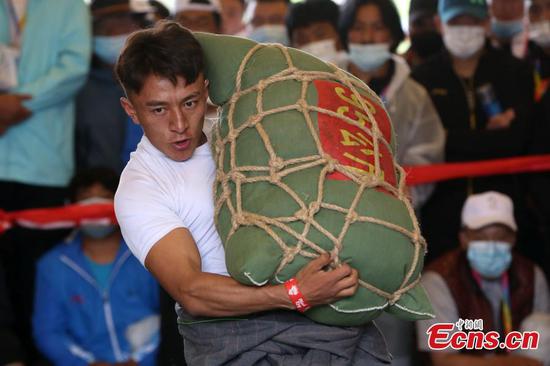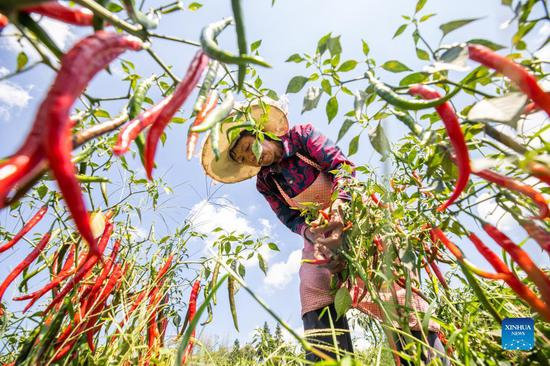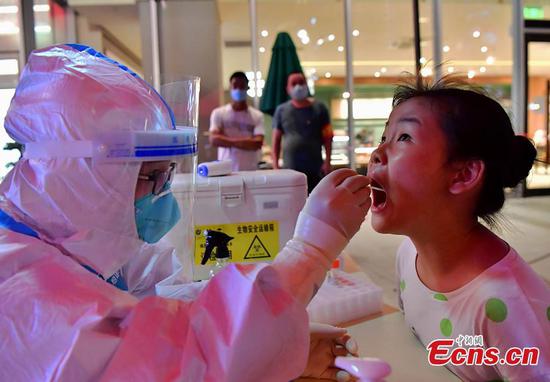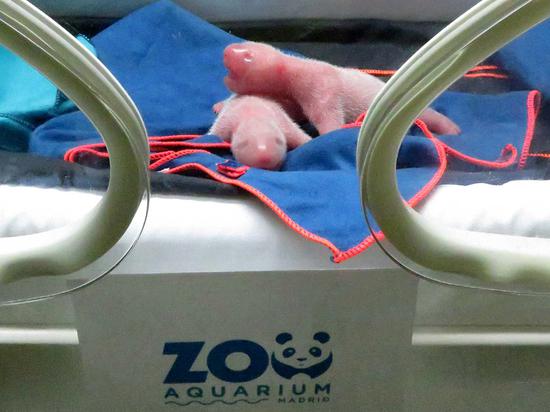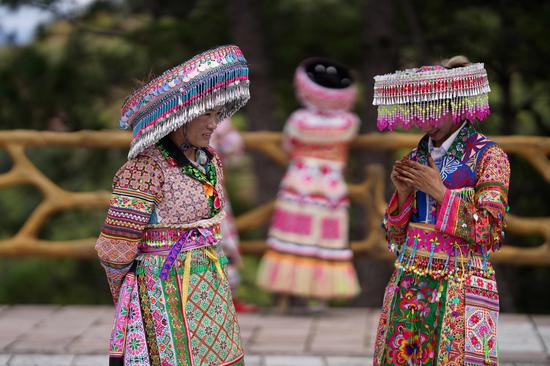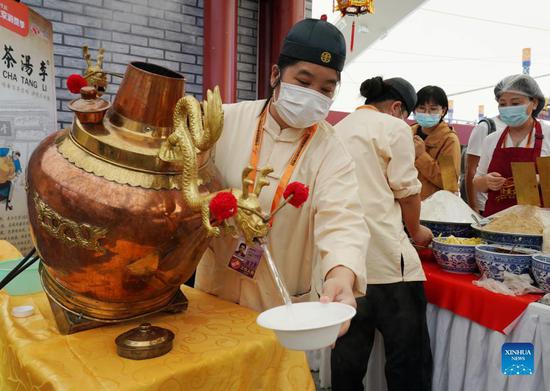
A medical team from Ningbo, Zhejiang province, treats patients in Aksu during a working tour of Xinjiang. (YUAN HUANHUAN/FOR CHINA DAILY)
Such centers were set up to provide training courses to help those influenced by terrorism and religious extremism. All trainees have graduated, the regional government said.
Rexitgul Memet, 35, from Kashgar city's Duolaitibage township, said more Uygur women are prioritizing self-value. An increasing number of young Uygur women are also delaying marriage to devote more time and energy to personal development.
Supported by her husband, Rexitgul had IUD insertion surgery in 2016 after giving birth to the couple's third child. Regulations on population and family planning in Xinjiang state that urban couples can have two children. Rural couples can have three.
"I decided to have an IUD mainly because it's convenient. I also receive a free annual gynecological examination to ensure there are no complications," Rexitgul said at home after returning from her job at an insurance company.
She said that even if the family planning policy is relaxed, she would not have another child.
"Our focus now is to give our children quality education and care. I want to see all three going to universities so they can achieve more in life," she said.









